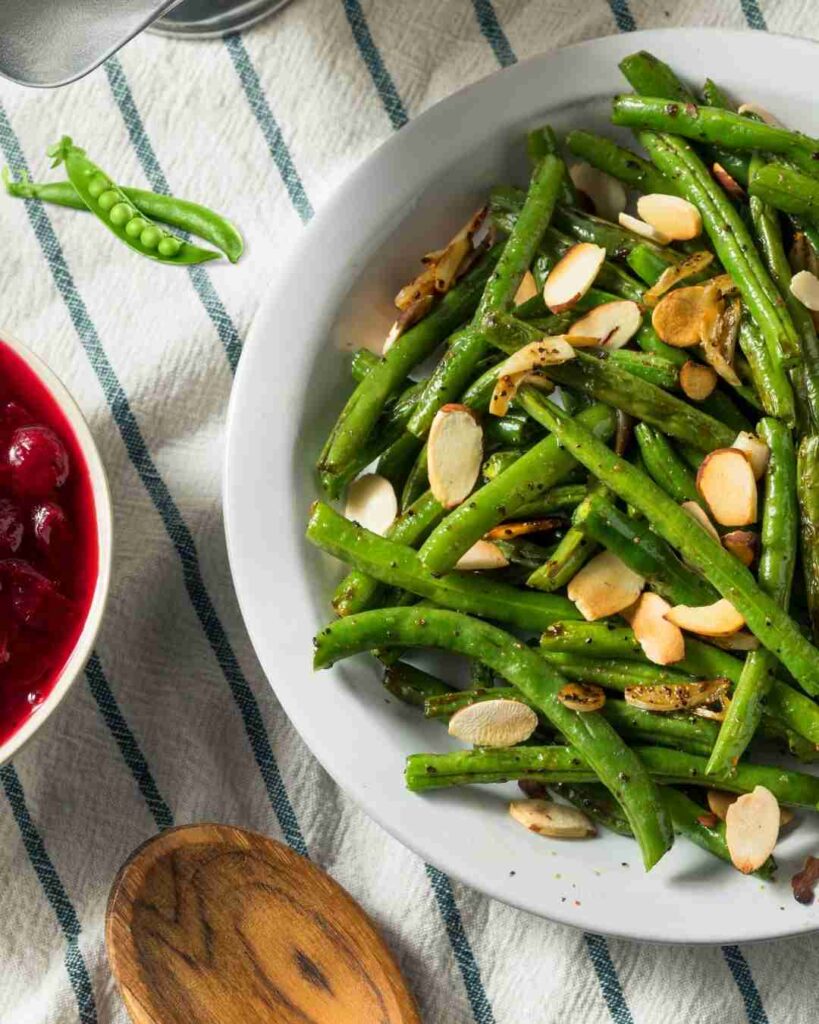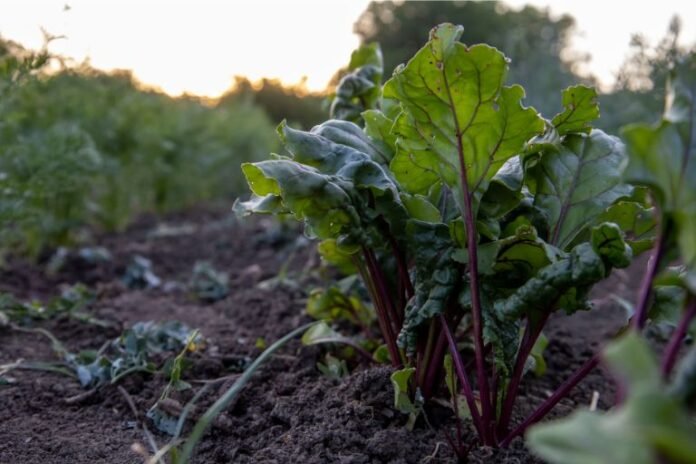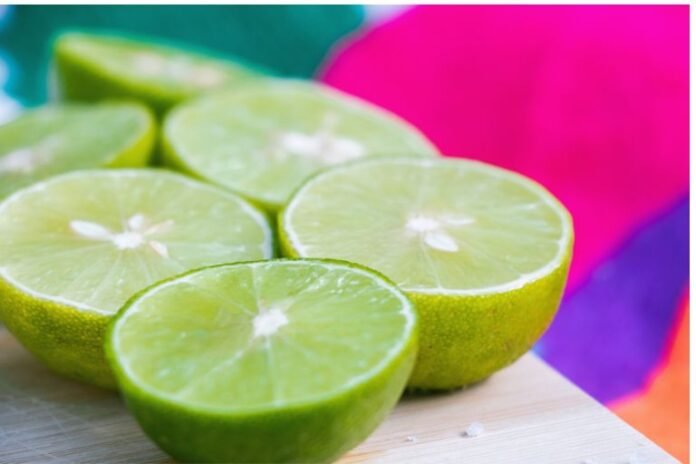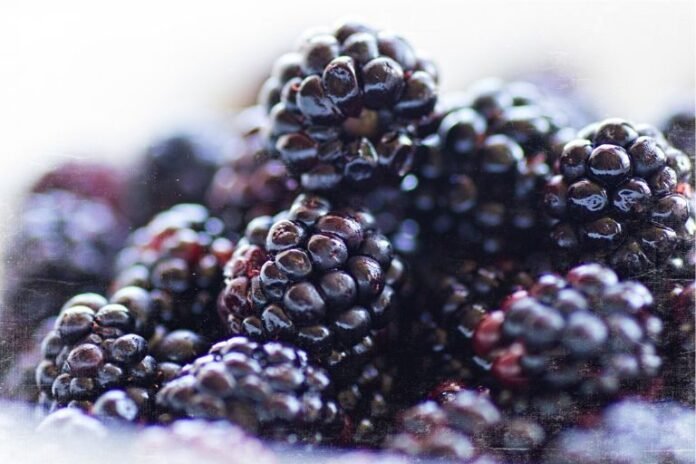You pour yourself a fresh cup of coffee in the morning, savoring the aroma. But as you take that first sip, a question might bubble up, perhaps triggered by a slight heartburn or a dentist’s warning: Is coffee acidic?
The answer seems simple, yet it is surprisingly complex. For chemists, acidity is a number on a pH scale. For coffee connoisseurs, acidity is a desirable, vibrant flavor note that makes high-quality beans taste fruity or floral. For health-conscious drinkers, acidity is often the villain behind acid reflux or stomach upset.
So, is coffee acidic, alkaline, or neutral?
The short answer is: Yes, coffee is acidic. Most brewed coffee has a pH level of around 4.85 to 5.10. However, simply calling it “acidic” doesn’t tell the whole story. Is it as acidic as lemon juice? Does adding milk change the chemistry? And does the acidity in the cup actually translate to acidity in your body?
In this definitive guide, we will filter through the science, the myths, and the brewing methods. We will explore the difference between acidic taste and chemical pH, explain why coffee might upset your stomach, and provide actionable tips to brew a smoother, low-acid cup if your body demands it.
What Does “Acidic” Mean in Coffee? (Coffee pH Explained)

To understand if coffee is bad for you or your stomach, we first need to define our terms. When people ask “is coffee acidic basic or neutral,” they are usually asking about the pH level.
The Basics of the pH Scale
The pH scale measures how acidic or basic a water-based solution is. It ranges from 0 to 14:
- 0 to 6.9: Acidic (0 is battery acid).
- 7: Neutral (Pure water).
- 7.1 to 14: Basic or Alkaline (14 is liquid drain cleaner).
Where Does Coffee Fall?
Is coffee acidic pH-wise? Absolutely.
Black, brewed coffee typically has a pH between 4.85 and 5.10.
For context, the scale is logarithmic, meaning each whole number is ten times more acidic than the next.
- Lemon Juice: pH ~2.0 (Very acidic)
- Orange Juice: pH ~3.5
- Tomato Juice: pH ~4.0
- Black Coffee: pH ~5.0
- Milk: pH ~6.5 (Slightly acidic, close to neutral)
- Pure Water: pH 7.0 (Neutral)
So, while coffee is definitely on the acidic side of the spectrum, it is significantly less acidic than the orange juice you might drink with breakfast or the soda you might drink with lunch.
Acidity as a Flavor Term
It is crucial to distinguish between chemical acidity (pH) and sensory acidity (flavor).
In the coffee industry, “acidity” is a positive term. It refers to the bright, tangy, or sparkling sensation on the tongue, like the snap of a Granny Smith apple. A coffee with “high acidity” usually tastes lively and crisp. A coffee with “low acidity” often tastes mellow, chocolatey, or flat.
Confusion Point: You can have a coffee that tastes “low acid” (like a dark roast) but still has a pH of 5.0.
Is Coffee Acidic or Basic or Neutral? (Science-Based Answer)
Let’s settle the chemistry question once and for all: Is coffee acidic or basic?
The Scientific Verdict
Coffee is acidic.
Chemically, coffee is an acidic solution. When hot water extracts soluble compounds from ground coffee beans, it pulls out various organic acids. No version of natural roasted coffee is basic (alkaline).
Even “low acid” coffees are technically still on the acidic side of the pH scale; they are just closer to neutral (perhaps pH 5.5 or 6.0) than standard beans.
Is Coffee Acidic or Base?
It is never a base. A “base” or alkaline substance would have a pH above 7. If your coffee had a pH above 7, it would taste soapy and bitter—likely inedible.
Sometimes, confusion arises because people hear about “alkaline diets” or “alkaline water.” While you can brew coffee with alkaline water to neutralize some acid, the coffee bean itself is inherently acidic in nature.
What About “Neutral”?
Is coffee acidic neutral or basic? It is not neutral. Pure water is neutral. Milk is very close to neutral. Coffee is distinctly acidic, though not as aggressive as stomach acid (pH 1.5–3.5). This is why most people can drink it without immediate injury, but sensitive individuals feel a burn.
Why Is Coffee Acidic?
You might wonder, why is coffee acidic in the first place? Is it something added during processing? No, the acidity is biologically innate to the seed (bean) of the coffee cherry.
The Symphony of Acids
Coffee contains over 30 different organic acids. These compounds are responsible for the complex flavors we love.
- Chlorogenic Acid: The most abundant acid in coffee. It is an antioxidant responsible for some of coffee’s health benefits, but it breaks down into quinic acid and caffeic acid during roasting, which can cause bitterness and stomach upset.
- Citric Acid: The same acid found in lemons. It gives coffee (especially light roasts) bright, citrusy notes.
- Malic Acid: Found in apples and pears. It adds a crisp, fruity tartness.
- Acetic Acid: The acid in vinegar. In low amounts, it adds sharpness; in high amounts, it tastes sour/fermented.
- Phosphoric Acid: An inorganic acid (rare in plants but high in coffee) that provides a sparkling sweetness, often found in Kenyan coffees.
Why Is Acidity Important in Coffee?
Without these acids, coffee would taste flat, boring, and muddy. The “brightness” of a morning cup comes specifically from these compounds. However, the concentration of these acids changes based on how the coffee is grown, roasted, and brewed.
Why Is Coffee Acidic but Bitter?
This is a common sensory puzzle: Why is coffee acidic but bitter? Usually, we associate acidity with sourness (like a lemon) and basic/alkaline things with bitterness (like kale or soap).
The Dual Nature of Coffee
Coffee manages to be both because it contains compounds from both sides of the flavor wheel.
- The Acids: As mentioned, citric and malic acids provide the sour/tart notes.
- The Alkaloids: Caffeine is an alkaloid, which is naturally bitter.
- The Roast: When coffee is roasted, sugars carmelize, and fibers burn. This creates “roast bitterness.”
Over-Roasting and Over-Extraction
- Light Roasts: Tend to be more acidic (sour/bright) because the organic acids haven’t been cooked away.
- Dark Roasts: Tend to be more bitter because the heat degrades the acids but creates bitter carbon compounds.
Over-extraction (brewing too long) pulls out excess tannins and degraded acids, leading to a cup that is both harshly acidic and unpleasantly bitter. This is often why gas station coffee tastes so aggressive—it has been sitting on a burner, cooking the acids into bitter compounds.
How Acidic Is Coffee Compared to Other Drinks?
To put things in perspective, let’s look at a coffee acidity chart. Many people who worry about coffee acidity happily consume beverages that are far more erosive.
Visual Comparison Table (Approximate pH)
| Beverage | pH Level | Acidity Level |
| Stomach Acid | 1.5 – 3.5 | Extremely High |
| Lemon Juice | 2.0 | Very High |
| Cola / Soda | 2.5 | High |
| Orange Juice | 3.5 | High |
| Beer | 4.0 – 4.5 | Moderate |
| Black Coffee | 4.85 – 5.10 | Moderate |
| Rain Water | 5.0 – 5.5 | Moderate |
| Milk | 6.5 – 6.7 | Low (Near Neutral) |
| Pure Water | 7.0 | Neutral |
| Green Tea | 7.0 – 9.0 | Neutral / Alkaline |
The “Soda” Surprise
How acidic is coffee compared to soda? Soda is significantly more acidic (pH ~2.5) than coffee (pH ~5.0).
The phosphoric acid in soda is far more damaging to tooth enamel and stomach lining than the chlorogenic acid in coffee.
However, people tend to notice coffee acidity more because we often drink it hot (which increases the volatility of aromatics) and on an empty stomach.
Is Coffee Acidic or Alkaline in the Body?

Here lies the biggest source of confusion: Is coffee acidic or alkaline in the body?
This question stems from the “Alkaline Diet” theory, which categorizes foods not by their pH before eating, but by the “ash” residue they leave behind after metabolism.
The Acid-Ash Hypothesis
According to this theory:
- Acid-Forming Foods: Meat, dairy, grains, sugar.
- Alkaline-Forming Foods: Fruits, vegetables, legumes.
Is Coffee Acidic to the Body?
Technically, coffee is considered an acid-forming food, but only weakly.
When you metabolize coffee, the byproducts are slightly acidic. However, for a healthy person with functioning kidneys and lungs, the body is incredibly efficient at maintaining blood pH (tightly controlled at 7.4). Drinking a cup of coffee will not change your blood pH or make your body “acidic.”
The “Leaching” Myth
Some claim that coffee makes the body acidic, causing calcium to leach from bones to neutralize the acid.
Scientific Consensus: Reviews of the acid-ash hypothesis show that while coffee increases calcium excretion in urine slightly, it does not lead to bone loss or osteoporosis if calcium intake is adequate.
Verdict: Is coffee acidic or basic in nature? It is acidic in the cup and weakly acid-forming in the body, but not enough to disrupt your systemic pH balance.
Is Coffee Acidic for the Stomach & Acid Reflux?
While systemic body acidity is largely a myth, stomach acidity is a very real physical sensation. Is coffee acidic for stomach health?
Yes, and Here is Why
Coffee affects the stomach in three distinct ways:
- Direct pH: You are adding a liquid with a pH of 5.0 to your stomach. However, your stomach acid is already at pH 2.0, so coffee actually dilutes the acidity slightly. The acidity of the liquid itself isn’t usually the main problem.
- Gastrin Stimulation: Caffeine and other coffee compounds stimulate the release of gastrin, the hormone that tells your stomach to pump more hydrochloric acid. This leads to an “acid belly” feeling.
- LES Relaxation: This is the big one for GERD. Caffeine relaxes the Lower Esophageal Sphincter (LES)—the valve between your stomach and throat. When this valve relaxes, stomach acid can splash up, causing heartburn.
Is Coffee Acidic for Acid Reflux?
Yes. If you suffer from Gastroesophageal Reflux Disease (GERD), coffee is a common trigger.
- The culprit: It is often the caffeine, not just the acid.
- The fix: Decaf coffee or low-acid cold brew is often better tolerated, but individual sensitivity varies.
Is Coffee Acidic for Teeth & Enamel?
Your dentist has likely warned you about your morning brew. Is coffee acidic for teeth?
The Enamel Erosion Risk
Tooth enamel begins to demineralize (dissolve) at a pH of roughly 5.5.
Since black coffee has a pH of roughly 5.0, it is technically below the safety threshold.
- Sipping Frequency: The real danger is sipping coffee slowly over 4 hours. This keeps your mouth in an acidic state, preventing saliva from neutralizing the pH and remineralizing the teeth.
Coffee vs. Soda Acidity
While coffee is acidic teeth-wise, it is far less dangerous than soda or energy drinks.
- Staining vs. Eroding: Coffee is more likely to stain your teeth (due to tannins) than to erode them significantly, unless you are a chronic sipper. Soda, with its pH of 2.5, actively strips enamel.
Dental Protection Tips
- Drink water: Swish with water after finishing your coffee to neutralize the pH.
- Don’t brush immediately: Brushing softened enamel can scrub it away. Wait 30 minutes after drinking acid.
- Add milk: The calcium and elevated pH of milk help protect teeth.
Is Black Coffee Acidic?
Is black coffee acidic? Yes, black coffee represents the raw pH of the bean extract.
Why Black Coffee Hits Harder
Without milk or cream to act as a buffer, black coffee delivers the full profile of chlorogenic and quinic acids directly to your digestive system.
- Empty Stomach: Drinking black coffee on an empty stomach is harsh because there is no food to absorb the stimulated gastric acid. This can lead to cramping or immediate bathroom urgency.
Brew Strength Impact
Interestingly, a highly concentrated espresso might have a similar pH to a drip coffee, but the total titratable acidity (the actual amount of acid molecules) is higher in the espresso.
However, you drink less volume of espresso. A large 16-oz mug of black drip coffee exposes your stomach to more total acid than a single shot of espresso.
Is Decaf Coffee Acidic?
If caffeine stimulates acid, is decaf coffee acidic?
The Decaffeination Process
Decaf coffee is made from the same beans as regular coffee. The decaffeination process (Swiss Water, CO2, or Solvent methods) removes 97-99% of the caffeine.
However, the process does not remove the organic acids (citric, malic, chlorogenic).
Acid Levels vs Regular Coffee
- pH Level: Decaf coffee has a slightly higher (less acidic) pH than regular coffee, often sitting around 5.1–5.3, but it is still acidic.
- Stomach Effect: Because decaf lacks caffeine, it stimulates less gastrin and stomach acid secretion. It also causes less relaxation of the esophageal sphincter.
Verdict: Decaf is chemically acidic, but functionally less irritating for acid reflux sufferers.
Does Adding Milk Make Coffee Less Acidic?
The most common home remedy for “acid stomach” is cream. Does putting milk in coffee make it less acidic?
The Chemistry of Buffering
Yes. Adding milk significantly lowers the acidity of the final drink.
- Dilution: You are mixing the pH 5.0 coffee with pH 6.7 milk.
- Protein Binding: The proteins in milk (casein) bind to the chlorogenic acids and tannins in coffee. This prevents them from interacting as harshly with your taste buds and your stomach lining.
Dairy vs. Plant Milk
- Dairy Milk: Excellent buffer due to calcium and protein.
- Almond/Soy Milk: Good buffers. They are usually close to neutral pH.
- Sweetened Creamers: Be careful. Sugar can feed gut bacteria that produce gas, which might worsen the feeling of indigestion even if the acidity is neutralized.
Lactose Sensitivity
Sometimes, people think the coffee is too acidic, but they are actually reacting to the lactose in the milk they added. If you get bloating only when you add milk, try a lactose-free creamer or oat milk.
What Factors Affect Coffee Acidity?

Not all cups are created equal. What factors affect coffee acidity? If you are shopping for beans, look for these clues.
1. Coffee Bean Origin
- High Acidity: Beans from Kenya, Ethiopia, and Central America (grown at high altitudes) are prized for their floral, fruity, high-acid profiles.
- Low Acidity: Beans from Sumatra, Brazil, and India (grown at lower altitudes) tend to be earthy, nutty, and naturally lower in acid.
2. Roast Level
- Light Roast: Highest acidity. The organic acids are intact.
- Medium Roast: Balanced.
- Dark Roast: Lowest acidity. Prolonged heat breaks down the acids. However, dark roasts contain more N-methylpyridinium (NMP), a compound that actually blocks stomach acid production, making dark roasts surprisingly gentle on the tummy.
3. Brewing Method
- Hot Brew: Extracts oils and acids quickly.
- Cold Brew: Extracts fewer acids (roughly 60-70% less acidic) because cold water is less efficient at dissolving those specific compounds.
How to Reduce Acid in Coffee (Practical Tips)
If you love the caffeine but hate the burn, here is how to reduce acid in coffee.
1. Switch to Cold Brew
This is the #1 fix. How to decrease the acidity of coffee? Stop using hot water. Steeping coarse grounds in cold water for 12–24 hours results in a smooth, sweet concentrate with a significantly higher pH (less acidic) than hot coffee.
2. Choose Dark Roasts
Look for French Roast or Italian Roast. The longer roasting time destroys the chlorogenic acids.
3. Add a Pinch of Salt
A pinch of salt in the grounds before brewing can help neutralize the perception of acidity and bitterness, making the cup taste smoother.
4. The Eggshell Trick (Fact Check)
Myth: Putting eggshells in the brew basket reduces acidity.
Fact: Eggshells are calcium carbonate (alkaline). In theory, hot water running through them can neutralize some acid. However, it risks salmonella if shells aren’t boiled first, and it can alter the flavor. It is safer to just buy low-acid beans.
5. Use Paper Filters
Paper filters trap some of the oils and sediments that contribute to acid reflux. Metal mesh filters (French Press) let everything through.
Low-Acid & Non-Acidic Coffee Options
For the ultra-sensitive, regular grocery store beans might not cut it.
What Coffee Is Not Acidic?
No coffee is 100% non-acidic (pH 7), but some are marketed as low acidic coffee.
- Tylers Coffee: claims to be “Acid Free” (pH Neutral). They use a proprietary Z-roasting process.
- Lifeboost Coffee: A popular brand of low-acid, single-origin beans.
- Puroast: Claims to have 70% less acid than standard coffee due to roasting methods.
Are They Worth It?
If you have severe GERD or Interstitial Cystitis (bladder pain triggered by acid), these brands are worth the premium price. For the average person, simply switching to a darker roast or cold brew is a cheaper solution.
Is Coffee Alkaline? (Myths vs Facts)
You may see products claiming to be alkaline coffee.
Is coffee alkaline? No.
Alkaline Coffee” products are typically herbal coffee substitutes (like chicory or dandelion root) or instant coffees fortified with alkaline minerals (magnesium, calcium).
- Mushroom Coffee: Often marketed as less acidic. The addition of adaptogenic mushrooms (Chaga, Reishi) can dilute the acidity, but the base is usually still coffee.
Evidence-Based Clarification: Do not buy “alkaline coffee” expecting it to cure diseases. The body regulates pH tightly. Buy it if you enjoy the taste or want to reduce stomach acidity.
Frequently Asked Questions
Here are the quick answers to the most common queries.
Is coffee acidic or alkaline?
Coffee is acidic. It typically has a pH between 4.85 and 5.10.
Is coffee acidic for acid reflux?
Yes. Coffee can trigger acid reflux by stimulating stomach acid production and relaxing the esophageal sphincter. Dark roasts and cold brews are often safer choices.
Does milk reduce coffee acidity?
Yes. Milk contains calcium and proteins that neutralize some of the acids in coffee, raising the pH and making it gentler on the stomach.
What is the least acidic coffee?
Cold brew coffee is naturally the least acidic brewing method. Dark roast beans (like Sumatra or French Roast) are the least acidic bean types.
Is decaf coffee acidic?
A: Yes, decaf coffee is still acidic (pH ~5.1), but because it lacks caffeine, it is often less irritating to the stomach than regular coffee.
Final Verdict: Is Coffee Acidic and Should You Worry?
So, is coffee acidic? Yes.
Chemically, it falls squarely on the acidic side of the scale, similar to a banana or a beer.
However, for the vast majority of people, coffee is acidic to the body in a negligible way. Our bodies are built to handle dietary acids effortlessly.
You should only worry if:
- You have Acid Reflux (GERD): The acid + caffeine combo is a trigger.
- You have Sensitive Teeth: Sipping black coffee all day can soften enamel.
- You have IBS/Gastritis: The enzyme stimulation can cause pain.
The Solution:
You don’t have to quit coffee. Simply pivot your strategy.
- Swap light roasts for dark roasts.
- Swap hot drip for cold brew.
- Add a splash of milk or almond milk.
By understanding the science of the bean, you can keep your morning ritual without the burn.
References & Further Reading
- National Library of Medicine (Scientific Reports): Acidity and Antioxidant Activity of Cold Brew Coffee.
- Journal of the American Dental Association (JADA): The pH of beverages available to the American consumer.
- Healthline: The Alkaline Diet: An Evidence-Based Review.
- PubMed (Review): Coffee intolerance: Is there a correlation with the acidity?













